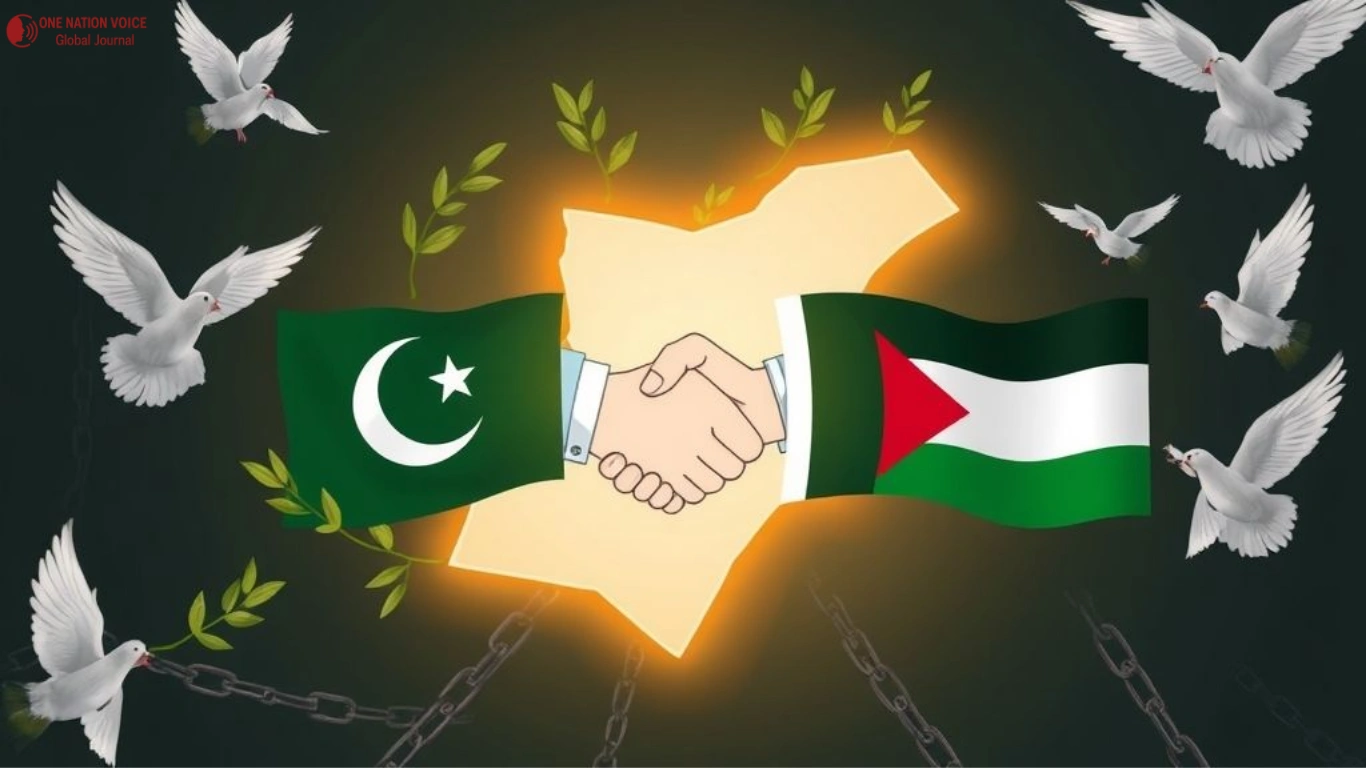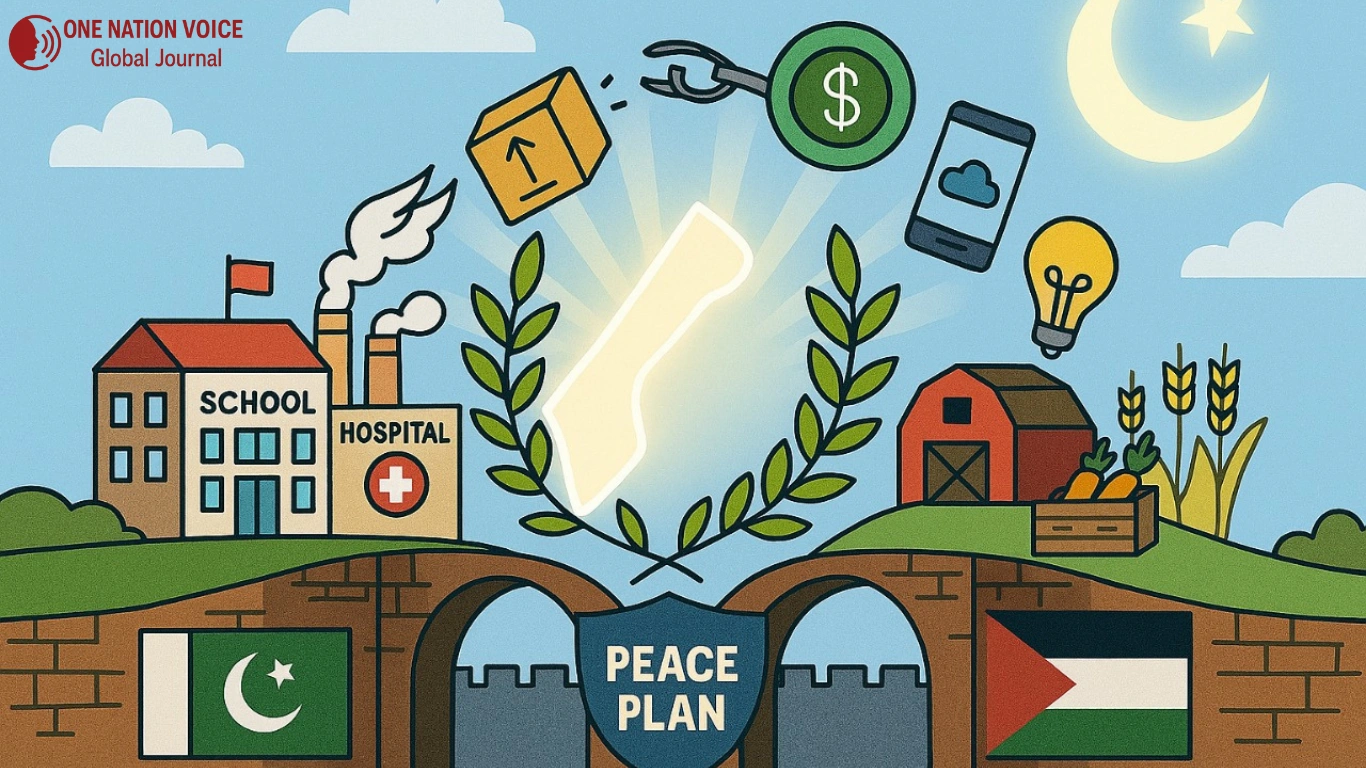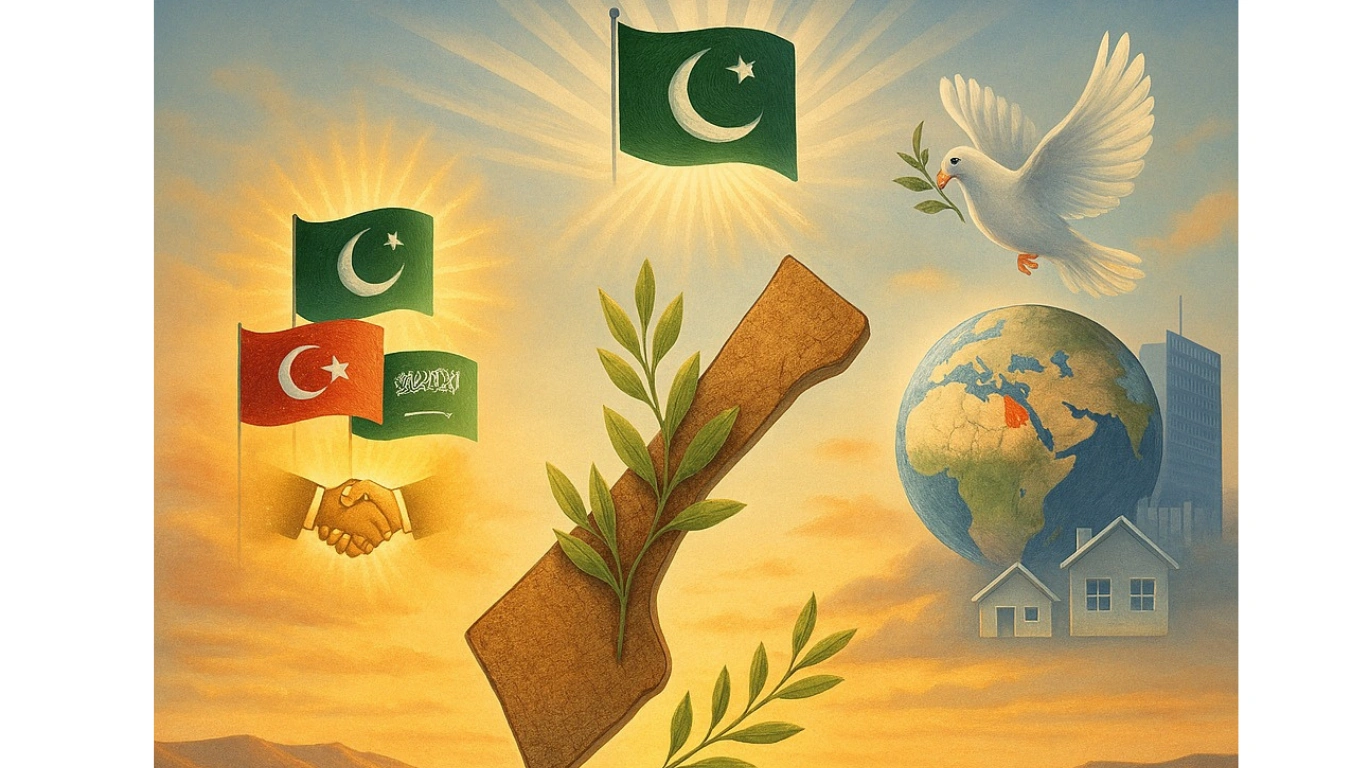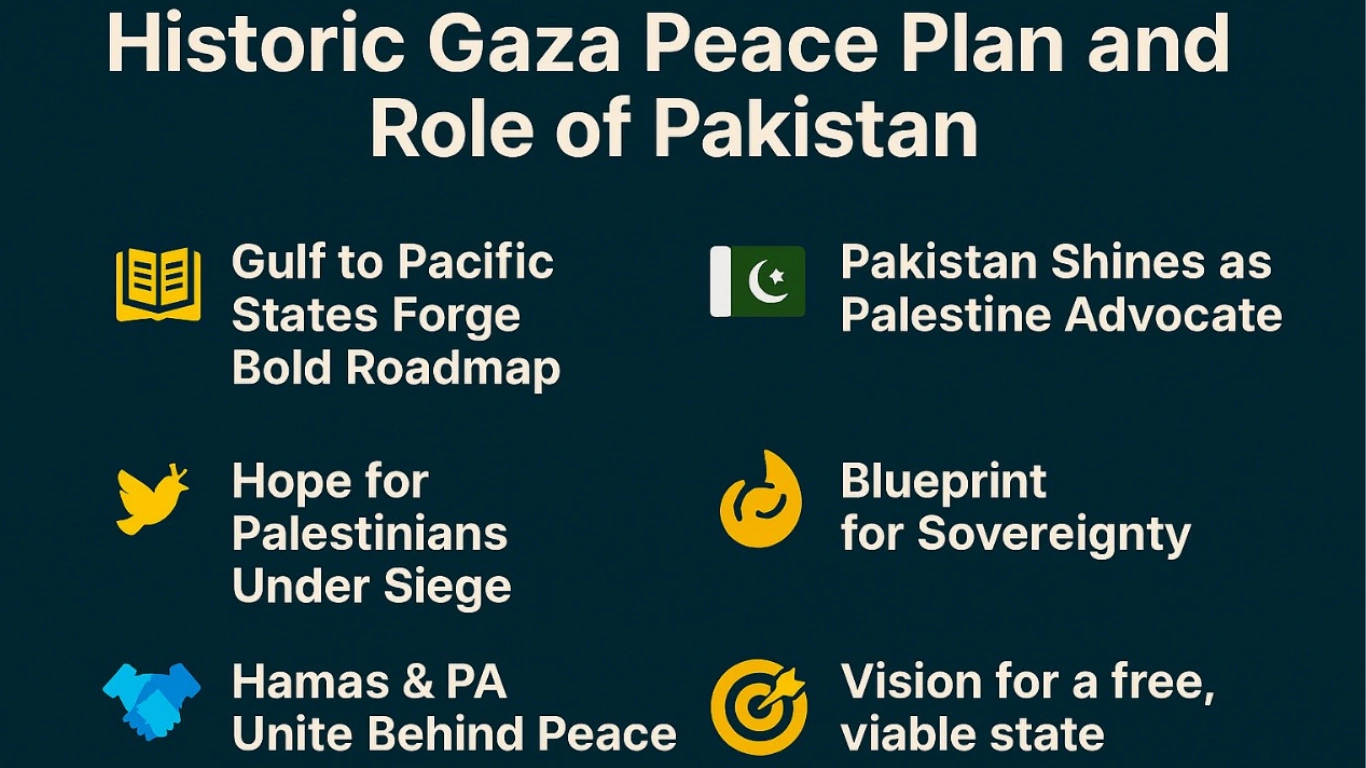Historic Gaza Peace Plan and Role of Pakistan

Historic Gaza Peace Plan and Role of Pakistan
For as long as most of the masses can remember, Gaza has been shorthand for human suffering. Decades of war, blockades, and failed negotiations left Palestinians, especially women and children living through unimaginable hardships. Besides, every attempt at peace seemed to collapse under mistrust, political rivalries, or outright violence. But something different is happening now. A new roadmap, dubbed as the Gaza Peace Plan, has been put on the table, and it feels like it could stick.
This is not the effort of one country or one leader. But it is the product of years of efforts by Muslim majority states stretching from Indonesia and Pakistan to Saudi Arabia, Egypt, and the Gulf. Additionally, the United States, under President Trump, also played a big role in keeping the negotiations alive and lending international weight to the process. Anyhow, what is striking this time is the alignment of regional powers and Washington pulling in the same direction, with backchannel talks finally bearing fruit.

Pakistan’s role
Pakistan deserves real credit here. For decades, Islamabad has stood firm on one principle. The principle is that Palestinians must have the right to self determination, and peace has to come through a genuine two state solution. Thus, in this latest process, Pakistani diplomats did not just show up to wave the flag, but they were actively shaping the outcome.
Furthermore, it is a reality that Pakistan helped to bridge the divides among Muslim countries, and kept the talks from getting bogged down in factional politics. More importantly, they ensured that the plan did not give away Palestinian rights or accept Israeli occupation, as a permanent reality. In other words, Pakistan helped keep the moral center of the conversation intact, while still pushing for a deal everyone could sign onto.
Why this matters for Palestinians
Moreover, it is hard to overstate how much Palestinians have endured in just the past two years alone. Gaza has been described as an open air prison for years, but the last stretch was more like living under siege. Similarly, bombings, blockades and collapsing health systems pushed ordinary families to the brink. Even many international observers went as far as calling it a genocidal onslaught.
For now, this peace plan promises to change that. It stops the cycle of violence, opens up space for rebuilding, and for the first time in a long time, offers a clear path to a functioning Palestinian state.
So, now imagining kids being able to go to school without fear of airstrikes, and families being able to rebuild their homes without worrying about them being demolished again, is a soothing thought. However, it is not a perfect solution, but it is a start towards living like a normal society, instead of one permanently defined by war.

A rare moment of unity
One of the most surprising outcomes of this process is the support it has drawn from both Hamas and the Palestinian Authority. These two factions have been at odds for years, and their divisions often sank earlier peace efforts before they even got off the ground. However, this time, backdoor negotiations brought them into alignment, and they have endorsed the roadmap.
So, this unity matters. In absence of it, no plan can survive, because any agreement needs buy in from Palestinians themselves, not just from foreign capitals. The fact that Hamas and the PA are both on board, signals that Palestinians see this as a chance worth taking.
The critics and the noise
Of course, not everyone is cheering. Some voices both inside and outside the region have dismissed the plan as naïve or politically motivated. This criticism is not new. For years, any attempt at peace has been attacked from one side or the other. But if one looks closely, a lot of the pushback now seems less about genuine concern for Palestinians, and more about political posturing.
So, the reality is stark. Palestinians have lived through decades of dispossession, and the last two years nearly broke Gaza completely. Hence, to dismiss a plan that could end that suffering because of narrow agendas feels out of touch. Besides, empathy means supporting something that offers Palestinians a shot at peace, even if it does not check every ideological box.

A vision for the future
Additionally, what the Gaza Peace Plan lays out is more than a ceasefire. It sketches the beginning of a Palestinian state which is viable, sovereign, and able to develop like any other country. So, this is not just about borders and flags. But it means jobs, schools, healthcare, and the ability to live without occupation or fear.
Furthermore, Pakistan has made clear that its support hinges on some prudent principles. They include no recognition of permanent Israeli occupation, and also no compromise on Palestinian sovereignty. Thus, Islamabad’s bottom line is the same as it has always been a just two state solution that reflects the will of the Palestinian people.
So, if the plan works in Gaza, it could become the model for resolving the broader Palestinian question. Of course, it does not erase the past or undo decades of suffering, but it gives people hope for the future, which is something Palestinians desperately need, right now.

Finally, the Gaza Peace Plan may not solve every problem overnight, but it is the first serious roadmap in years that feels like it could break the cycle. On one hand, for Palestinians, it means a chance at dignity, security, and normal life. On the other, for the region, it offers the possibility of stability after decades of turmoil. Additionally, for Pakistan, it is a proof that standing firm on principles, while engaging in tough diplomacy can deliver results.
Hence, if this plan works, it will not just be another document gathering dust in the archives of failed peace talks. It could mark the moment, and the world will finally turn the page on one of the most painful chapters in modern history.
The views and opinions expressed in this article are exclusively those of the author and do not reflect the official stance, policies, or perspectives of the Platform.







